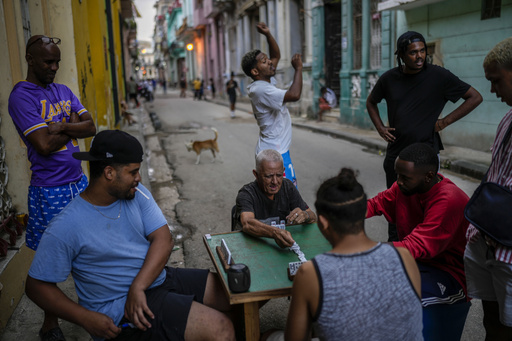
Havana authorities announced on Sunday that several individuals were detained for disorderly conduct following a series of protests triggered by ongoing power outages.
The Cuban Attorney General’s office indicated that criminal proceedings had commenced for citizens in areas such as Havana, the Mayabeque province, and Ciego de Avila. The charges included “assault, disorderly behavior and damages,” and the detentions were described as a precautionary measure by the authorities.
While the announcement lacked specifics regarding the number of individuals arrested and the circumstances surrounding their detainment, it mentioned that “aggression towards authorities” had resulted in injuries.
The Cuban government frequently brings similar accusations against citizens who engage in protests, even targeting minors, which raises significant concerns among human rights advocates, as well as organizations in the European Union and the United States.
On the same day the arrests were reported, the organization Justicia11J confirmed via social media that at least three individuals had been detained in Ciego de Avila on November 7. The protest erupted in response to over 24 hours without power, with residents expressing their frustration by banging on pots and shouting for the restoration of electricity.
These detentions come in the wake of the island facing the impact of two hurricanes in quick succession, alongside severe energy shortages that have caused blackouts lasting several days. Additionally, strong winds from the hurricanes have compounded the crisis.
Hurricane Rafael, a Category 3 storm, devastated the western region of the island, leading to a complete loss of the national power grid. Although some power has been restored in major cities like Havana, numerous inhabitants remain without electricity and access to clean water. The situation worsened following a 6.8 magnitude earthquake that struck eastern Cuba on Sunday morning.
Beyond the natural calamities, the island has been grappling with an economic downturn characterized by soaring prices for basic goods including fuel and food. Many Cubans find it increasingly challenging to afford essentials such as chicken and eggs.
As a result of these hardships, hundreds of thousands of Cubans have chosen to leave the country in search of better opportunities elsewhere, leading to increased protests that have been met with similar government crackdowns.
One of the largest demonstrations occurred in July 2021, spurred by food shortages that prompted widespread anti-government protests, the most significant in decades. While these protests included incidents of looting and violence, they were met with a severe response from the Cuban government.
While official statistics were not provided, various non-government organizations reported around 1,000 arrests, with approximately 700 individuals facing court proceedings. Charges such as sabotage, violent robbery, assault, and public disorder were levied against many participants, although family representatives of the accused maintained that their relatives did not engage in violent actions.
Following the major protests in 2021, smaller demonstrations were observed in October 2022 and again in March of the current year.
